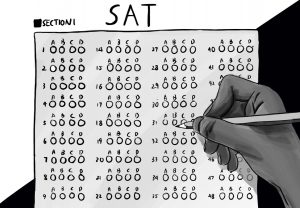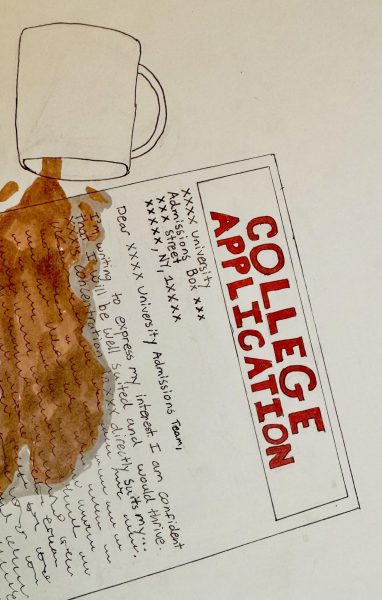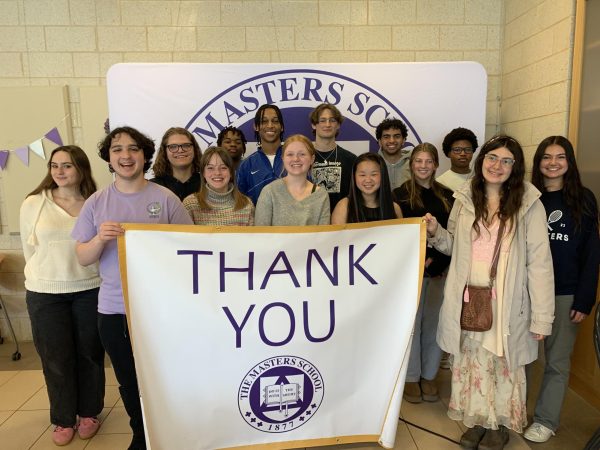If they can’t be in the room, let them zoom
March 9, 2022
In the Spring of March 2020, The Masters School, like many others, began conducting school online due to the Coronavirus outbreak. For the entirety of the fourth quarter, classes, extracurriculars and all meetings were held virtually using the online platform Google Meet.
This system of virtual learning was designed so that students could finish the semester while staying within the safe confines of their home. This system continued to run for the remainder of 2020, as well as on and off during the 2020-2021 school year, as mandated quarantines were lifted.
Now that most schools are fully in-person and the hybrid system is no longer necessary, it is up to specific schools whether or not they wish to provide virtual learning as an option for students that, for a variety of reasons, are not able to be at school in person. For the 2021-2022 school year, Masters has made the decision to mandate virtual learning only for students that test positive with Covid. During the five days that each student is required to quarantine, they may join their classes online so that they do not have to be absent.
However, for students that do not test positive for Covid, but have some other reason that they are not able to be in person, the option of virtual learning has been revoked. Those students must accept an absence in all classes that they are not able to attend in person and make up their assignments and missed classwork another time. This then puts students behind and adds more stress to their lives, when tensions have already been heightened for the past two years.
In the past, students that were not able to attend school in person had no way of attending class virtually. Most schools were not even aware that virtual learning could be an option, as seen in data that states prior to 2020, Zoom had 200 million meeting minutes as compared to the 3.3 trillion annual meeting minutes in January of 2022. Before the pandemic, most institutions had no need for virtual learning either, as students that were not able to attend school simply made up their work following their return.
Today, I believe it is pointless not to offer students the ability to participate in virtual learning even if they have not tested positive for the virus.
Junior Maddie Marlowe, had to miss just shy of six weeks of school in the fall semester due to another illness.
“Because I didn’t have Covid, I wasn’t able to do online school which definitely caused me unnecessary anxiety.”
— Maddie Marlowe
Because students aren’t able to attend school virtually without a diagnosis of Covid-19, it puts students unfairly behind and adds unnecessary stress to their life. It would be less stressful to stay apace with the work than have to cram six weeks worth of work in, when at the same time, they are getting new work, so now, they have to work almost twice as hard as their peers, all while still physically recovering from whatever they were out for.
It is likely that the reason this decision was made was because faculty worried that if virtual learning became an option for every student, members of the community would take advantage of it, participating in online school when they simply did not feel like being in person or had a test or quiz. However, I believe there is a way to offer students this option without them being able to take advantage of it. Students should be able to participate in virtual learning for regular classes but should they have a test or exam, they have to wait until they are in person in order to take it. Additionally, a student’s parent or guardian must call the school, alerting them to the reasoning that such person can not come to school. This way, faculty do not have to worry about students going home simply to take a test online when they are able to take it in person.
Even though Masters has made the decision that students who have not tested positive for Covid should not be allowed to attend online school, this choice should be re-thought so that being absent does not have to be an unnecessary burden for students.




























